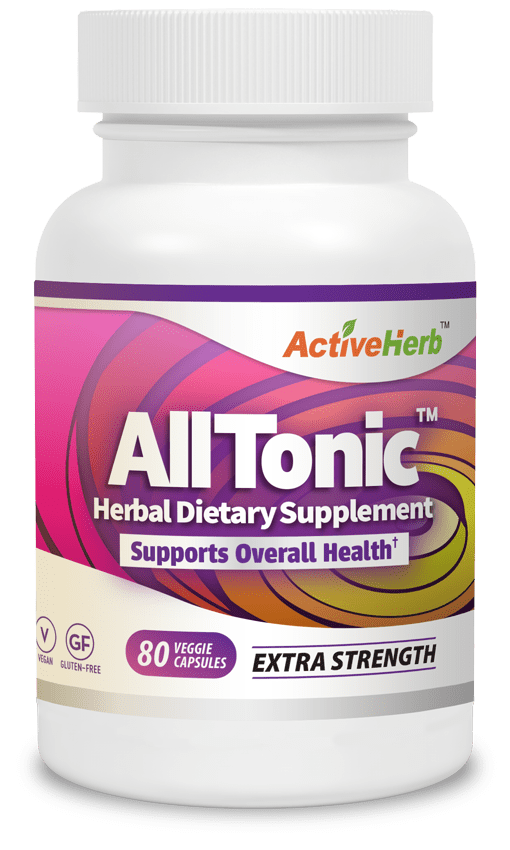TCM For Bodybuilding? These Formulas May Help Prevent Muscle Loss

When you were a child, did you have a parent or grandparent that seemed like a superhero? Perhaps you remember their once-vigorous physique hoisting up and spinning you around like you were a featherweight. Fast forward to today, however, and Superman or Wonder Woman are now mere shells of their former selves, barely struggling to carry groceries, much less your own kids now. That physical deterioration isn’t just normal aging. It could be muscle loss that steals strength, independence, and vitality from millions of older adults.
And it’s not rare. Up to one in four people over 60 may be affected, and rates spike dramatically after age 75. Muscle wasting doesn’t just shrink muscles. It shrinks quality of life. It increases the risk of falls, fractures, frailty, and even premature death.
But what if Traditional Chinese Medicine (TCM) had an answer—one that modern science is now starting to confirm? We’ll answer that shortly, but first, the basics….
What Is Muscle Loss and Why Does It Happen?
The progressive loss of muscle mass and strength is largely driven by:
- Mitochondrial dysfunction (your cells’ energy factories breaking down)
- Chronic low-grade inflammation
- Loss of muscle-regenerating satellite cells
- Gut microbiome imbalance
- Impaired protein synthesis
In simpler terms: Your body’s repair system slows, your muscles burn out faster, and your ability to recover from exertion weakens.
How Does TCM View Muscle Loss?
If you’re a student of TCM, you won’t come across any mention of disease patterns that translate into modern conditions in any classical medical texts. However, muscle loss symptoms fall under several TCM categories, including:
- Wei Syndrome: Weakness and wasting of the limbs.
- Bi Syndrome: Pain and stiffness caused by internal/external factors.
- Qi and Yang Deficiency: Particularly of the Spleen and Kidefney systems.
- Blood Stasis: Impaired circulation contributing to muscle atrophy.
According to the Huangdi Neijing (The Yellow Emperor’s Classic of Internal Medicine), the Spleen governs muscles and the Stomach is “the sea of nourishment.” If these organs are deficient, the limbs become weak. Kidney Yang is also essential because it’s the root of foundational energy, including musculoskeletal integrity.
TCM views muscle loss as a whole-body imbalance, one that can be addressed not just by adding more protein, but by tonifying the body’s root systems.
The Surprising Role of Chinese Herbal Medicine in Muscle Preservation
Modern research is catching up to what TCM doctors have long suspected: Chinese herbal formulas may help preserve and even restore muscle strength in aging bodies.
A new research review published in Frontiers in Pharmacology, co-authored by researchers from two leading geriatrics departments in China, outlined the clinical evidence and mechanisms behind this ancient-modern integration.
Here are some of the standouts:
Si Jun Zi Decoction – The Spleen Supporter
Key herbs:
- Ren Shen (Ginseng)
- Bai Zhu (Atractylodes macrocephala)
- Fu Ling (Poria)
- Gan Cao (Licorice)
These four herbs, collectively, are known as “Four Gentlemen Decoction,” and serve as the foundation of the following best-selling ActiveHerb.com formulas:
- AllTonic: Consider it the TCM all-around multi-vitamin!
- LiverVive: A Qi tonic that strengthens Spleen meridian function.
- Tonics8: Ideal for those with pale complexions and muscle weakness.
- DigestVive: The name says it all; it’s not about what you eat, it’s about what you absorb. And if your muscles aren’t well nourished, they can deteriorate.
- Stomakinder: When the muscles of your abdominal wall rebel after meals, this TCM formula comes to the rescue.
What do these TCM top-sellers have in common by adding Si Jun Zi? They tonifiy Spleen Qi, thereby supporting digestion and muscle production. According to the research study, when combined with resistance band training in elderly patients, Four Gentlemen Decoction improved grip strength, muscle mass, and walking speed better than exercise alone.
For herbalists and herb-dispensing acupuncturists: Consider prescribing Si Jun Zi Decoction-containing formulas to aging clients with signs of fatigue, poor appetite, loose stools, and muscle wasting. All these symptoms may point to Spleen Qi deficiency.
Jin Gui Shen Qi – The Kidney Yang Tonic
If the life force seems to be slipping away, this formula, known in TCM texts as “Kidney Qi Pill from the Golden Cabinet,” may help revitalize and prevent further muscle-wasting. The formula contains Fu Zi (Aconite), Rou Gui (Cinnamon bark), Shu Di Huang (Rehmannia), plus five more warming and water-regulating herbs.
By tonifying Kidney Yang, Jin Gui Shen Qi supports the bones and muscles of the lower back.
ActiveHerb.com’s YangVive and ProstateSure contain this foundational formula, both of which help overcome Kidney Yang Deficiency. This TCM pattern often correlates with muscle atrophy and fatigue. TCM doctors prescribe Jin Gui Shen Qi to restore foundational vitality and muscle tone, especially in cold, weak, elderly constitutions.
Ba Zhen Decoction – The Whole-Body Rejuvenator
This formula combines Si Jun Zi Decoction (see above) and Si Wu Decoction, which is a Blood Tonic, ideal for supporting a normal menstrual cycle. In case you’re wondering what the menstrual cycle has to do with progressive muscle loss, here’s the link.
Elderly people often present with both Qi and Blood Deficiency. These twin TCM patterns manifest as being thin, pale, having low energy and poor memory, and, of course, a deteriorating muscle tone.
According to the research review of TCM and muscle loss, a clinical trial of 118 patients found that Ba Zhen Decoction improved walking speed, grip strength, and muscle mass after 12 weeks.
Muscle-Building Beyond the Gym?
But what about younger gym rats? Can TCM help develop Arnold-like basketball-sized biceps? Well, truth be told, TCM formulas are no substitute for post-workout creatine and protein powder; we’re not likely to see anytime soon a paradigm shift where bodybuilders pop TCM tablets or capsules. However, the research does support Chinese herbs for post-workout recovery support, enhanced nutrient absorption, normal inflammation levels, and mitochondria activity.
Thus, if you’re of the constitutional type prone to fatigue, gut issues, or constitutional weaknesses, consider making room in your supplement cabinet for AllTonic.
And for aging lifters? Taking muscle-supporting TCM formulas could mean fewer injuries, better endurance, and longer-term muscle retention.
Gentle Movements, Big Benefits: Tai Chi & Baduanjin for Muscle Strength
Not everyone can—or wants to—lift heavy weights. That’s where traditional movement therapies such as Tai Chi and Baduanjin come in. You’ve undoubtedly heard of Tai Chi, but what is baduanjin, you may be wondering? Known as “The Eight Brocades of Muscle Longevity, it’s essentially eight flowing movements, dating back to the Song Dynasty (960 to 1279, CE). These elegant but simple movements are accessible to seniors and clinically shown to improve muscle strength, balance, and mobility.
Combined with herbal formulas, they provide a powerful yet sustainable way to resist muscle loss.
Final Thoughts: Should You Add TCM to Your Muscle-Strengthening Routine?
If you want to preserve strength into old age—or help an elderly parent maintain independence—TCM deserves a spot in the conversation and medicine cabinet. TCM’s combination of Qi and Yang tonics, and blood movers, nourish the body’s bones, sinews and muscles.
In the West, we tend to view muscles in terms of aesthetic value and fitness goals. However, in TCM, supporting muscles is a key to freedom, vitality, and aging with dignity. And now, both modern science and ancient wisdom point to the same conclusion: Don’t just build muscle—nourish it. And don’t just chug protein powder, but also support your Qi.






